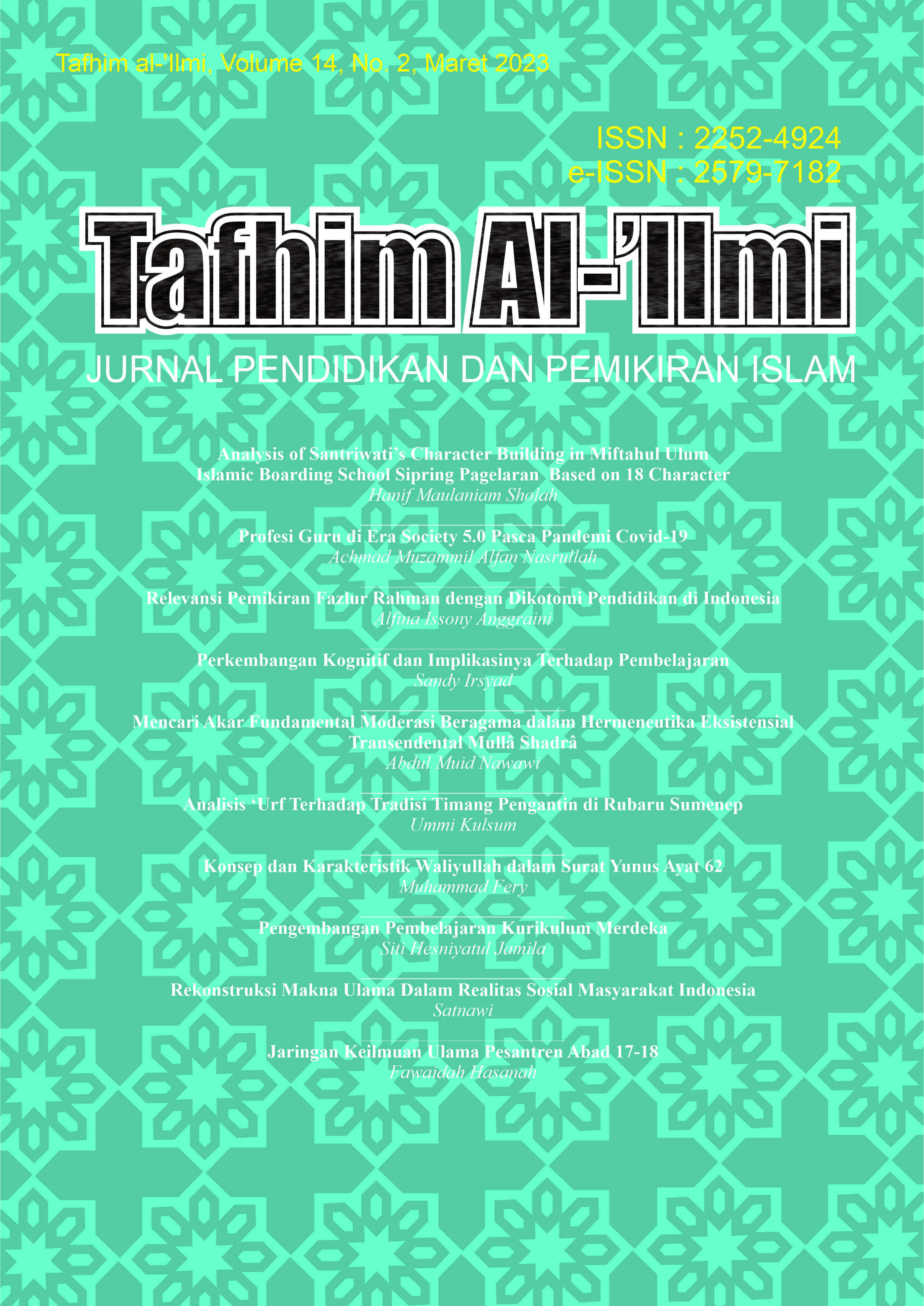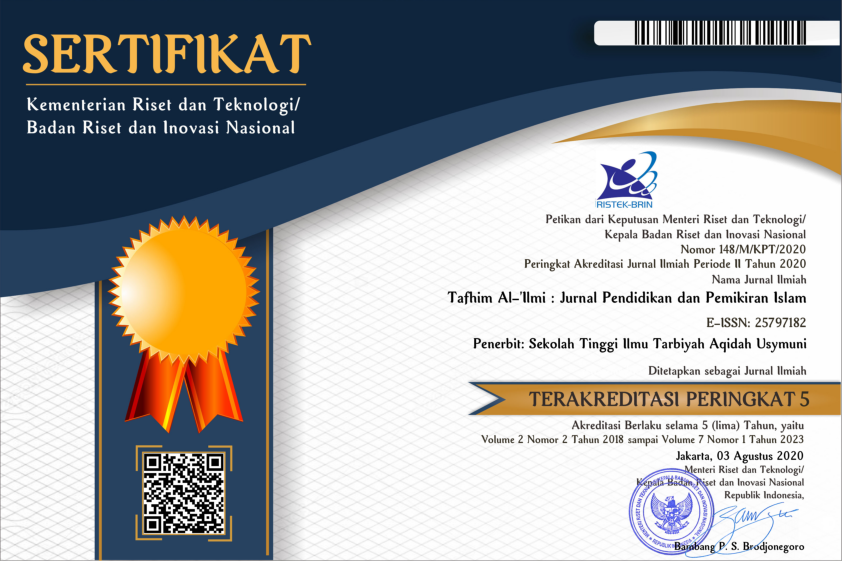Profesi Guru di Era Society 5.0 Pasca Pandemi Covid-19
Profesi Guru dalam Pengembangan Teknologi di Era Society 5.0 Pasca Pandemi Covid-19
DOI:
https://doi.org/10.37459/tafhim.v14i2.5831Abstract
Amid the improvement of the teacher education system, it will be required with several significant challenges during the era of society 5.0 and after the Covid-19 pandemic, which is still not improving, causing teachers to have to adapt to social technology by applying the Blended Learning system. The teaching profession requires skills that are also based on the concepts and theories of science, also requiring expertise in the field they are engaged. This study aims to discover the challenges of teacher professional ethics that enter technological developments in the era of Society 5.0 after the Covid-19 pandemic. The research method is descriptive qualitative by analyzing directly from the source with a purposive sampling technique which is continued by data collection, observation, interviews, and documentation. The sample used is teachers who actively teach at two levels of education, namely at the MI level and MTS, located in the Sumber Batu area, Pamekasan Regency. The results showed that the teaching profession in society 5.0 after the Covid-19 pandemic revealed that (1) the teaching profession began to adapt to the development of social media, which continues to increase and varies, (2) the teaching profession after the Covid-19 pandemic must also adapt to the existence of a Blended Learning system that has a combination of face-to-face meetings with online systems.  Keywords : system, technology, education, profession ÂDownloads
Published
2023-06-09
How to Cite
Alfan Nasrullah, A. M., & Imam Sufiyanto, M. (2023). Profesi Guru di Era Society 5.0 Pasca Pandemi Covid-19: Profesi Guru dalam Pengembangan Teknologi di Era Society 5.0 Pasca Pandemi Covid-19 . Tafhim Al-’Ilmi, 14(2), 198–214. https://doi.org/10.37459/tafhim.v14i2.5831
Issue
Section
Articles
License

This work is licensed under a Creative Commons Attribution-ShareAlike 4.0 International License.
Artikel yang dimuat dalam jurnal ini boleh disebarluaskan, diterbitkan kembali, dengan syarat mencantumkan bahwa artikel tesebut telah dimuat di jurnal Tafhim al-'Ilmi dengan mencantumkan volume, nomor, dan halaman artikel terkait.







